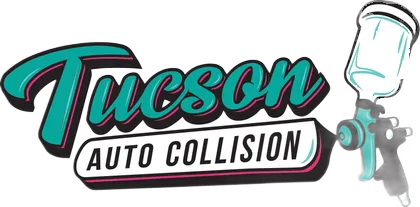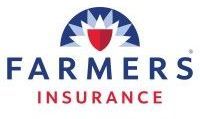How do you choose the right car insurance?
How to Choose the Right Type of Car Insurance for You
When it comes to car insurance, not all policies are created equal. The right coverage can offer peace of mind and financial protection, while the wrong one can leave you vulnerable when you need help the most. At Tucson Auto Collision Center, we’ve worked with drivers on all ends of the insurance spectrum—those fully protected, and those left footing hefty bills due to minimal coverage. That’s why we’ve put together this general guide to help you better understand the different types of car insurance and what might work best for your needs.
Remember, this is not legal advice or a substitute for a conversation with a licensed insurance agent. Use this as a starting point to help you ask the right questions and find a policy that works for your situation.
What’s the Minimum Legal Coverage in Arizona?
If you live and drive in Arizona, the law requires you to carry a minimum level of car insurance. As of 2024, the minimum liability insurance requirements in Arizona are:
$25,000 for bodily injury liability per person
$50,000 for bodily injury liability per accident
$15,000 for property damage liability
This type of coverage is commonly referred to as liability insurance, and it covers damage or injuries you cause to others in an accident. However, it does not cover damage to your own vehicle or medical bills for you or your passengers.
Minimum liability insurance is the cheapest option upfront, but it’s also the riskiest. If you're found at fault in a major accident, damages could easily exceed your coverage limits—meaning you could be responsible for paying the rest out-of-pocket.
Understanding Basic vs. Comprehensive Coverage
Now that you know what Arizona requires, let’s break down two common types of car insurance that go beyond the minimum: basic coverage and comprehensive coverage.
Basic Coverage
Basic coverage typically includes:
Liability Insurance (as required by law)
Collision Coverage – helps pay for repairs or replacement of your own car if you hit another vehicle or object, regardless of who is at fault.
Medical Payments (MedPay) or Personal Injury Protection (PIP) – covers medical expenses for you and your passengers, even if you’re at fault.
Uninsured/Underinsured Motorist Coverage – protects you if you're hit by a driver with no insurance or not enough insurance.
This type of policy is ideal for someone with a newer vehicle or a loan/lease that requires added protection. It provides more security than the legal minimum and helps cover damages to your own vehicle.
Comprehensive Coverage
Comprehensive insurance is the highest level of protection and includes everything in basic coverage, plus:
- Theft
- Vandalism
- Fire
- Natural disasters (such as hail, flooding, or wind)
- Falling objects
- Animal collisions (like hitting a deer)
This is the best option if you want full protection from a variety of unexpected events, not just accidents. It’s especially smart for those with high-value vehicles or anyone who can’t afford a large out-of-pocket cost if their car were totaled or stolen.
Key Questions to Ask When Choosing Coverage
Before you make a decision, take a step back and ask yourself the following:
What’s the value of my vehicle?
If your car is older and paid off, you may not need comprehensive coverage. But if it’s new or financed, consider full coverage to protect your investment.
How much can I afford to pay out of pocket after an accident?
Higher deductibles mean lower monthly premiums—but more risk if you need to file a claim.
Do I drive frequently or commute long distances?
The more time you spend on the road, the higher your chances of an accident. More coverage may be a wise move.
Do I have health insurance that covers car accident injuries?
If not, MedPay or PIP coverage could be essential.
What are my local risks?
In Tucson, hailstorms, flash floods, and even wild animals can pose threats. Comprehensive coverage protects against those risks.
Your Insurance, Your Choice
Choosing the right type of car insurance isn’t just about following the law—it’s about protecting yourself, your passengers, and your finances. While Arizona’s minimum legal coverage might satisfy state requirements, it may not be enough to cover the cost of repairs, medical bills, or property damage after an accident.
At Tucson Auto Collision Center, we’ve seen first-hand how the right insurance policy can make all the difference. While we can help you repair your vehicle after a collision, having a good insurance plan in place helps make the entire process smoother, faster, and more affordable.
Use this guide as a starting point for understanding your options, and take the time to speak with a licensed insurance professional. Ask them about your risks, your options, and how to find the right balance between coverage and cost. You’ll be glad you did.
Need repairs after an accident?
We work with most insurance providers and can help streamline your claim. Contact Tucson Auto Collision Center
today for trusted, professional collision repair services.


